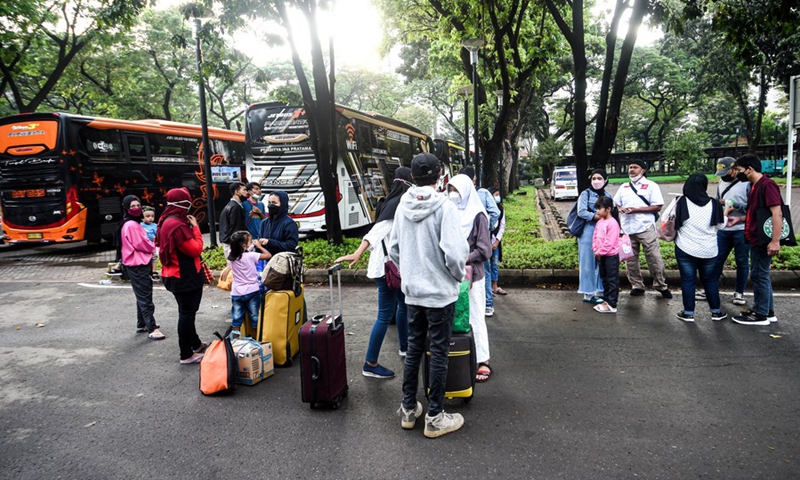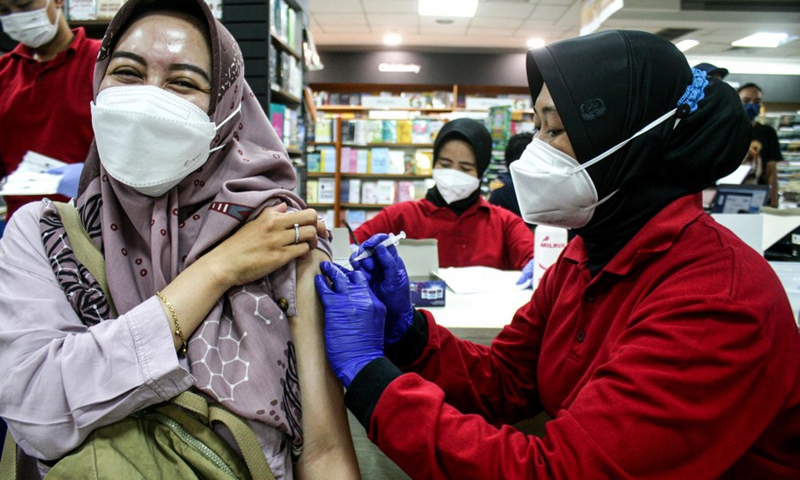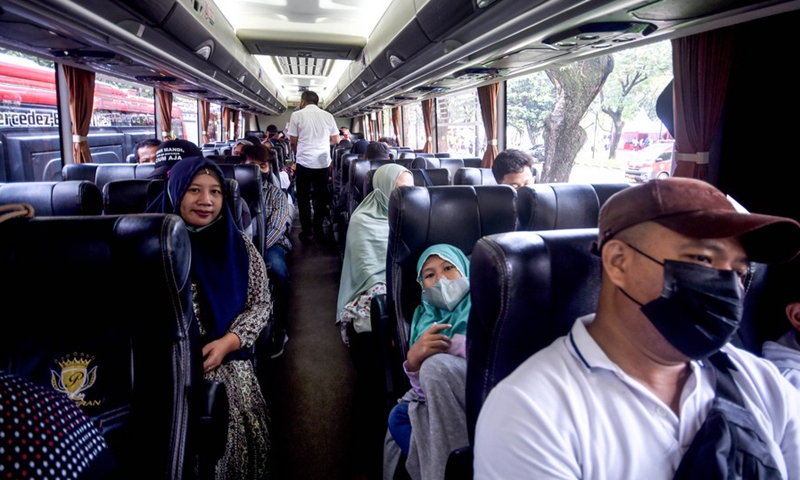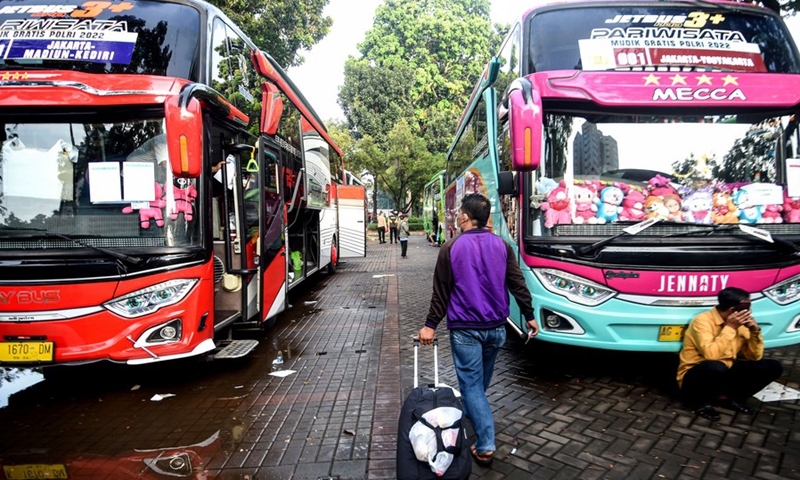
Passengers wait to board free-of-charge buses to their hometown in Jakarta, Indonesia, April 26, 2022.(Photo: Xinhua)

A woman receives a booster dose of COVID-19 vaccine at Gramedia Book Store in Surabaya, East Java, Indonesia, April 26, 2022.(Photo: Xinhua)

Passengers are seen aboard a free-of-charge bus to their hometowns in Jakarta, Indonesia. April 26, 2022.(Photo: Xinhua)

A passenger brings luggage before boarding a free-of-charge bus to his hometown in Jakarta, Indonesia. April 26, 2022.(Photo: Xinhua)
At the Pulo Gebang bus terminal in the eastern part of the Indonesian capital Jakarta on Monday morning, Ahmad Suryadi, his wife and two children were waiting for a bus that will take them to their hometown in Pekalongan, Central Java, for the Eid al-Fitr celebration.
Eid al-Fitr in Indonesia, the most populous Muslim-majority nation, falls on Monday next week. It is customary for people living in major cities to return to their hometowns to celebrate the annual religious holiday with their extended families.
A survey conducted by the country's Transportation Ministry showed that approximately 80 million people would travel back to their hometowns during the 2022 Eid exodus period.
At least 13 million of the travelers, the report said, were from Greater Jakarta, one of the world's most densely-populated cities.
Suryadi's family, which has been residing in the capital for more than 20 years, would eventually be able to get back this year to celebrate the festive holiday together with other family members. The last time they did so was in 2019, before the pandemic hit Indonesia.
For the past two years, Muslims in the archipelagic nation have faced challenges in traveling home for the Eid celebration as the government banned the annual homecoming tradition due to the COVID-19 pandemic.
"Now our kids cannot wait to celebrate Eid with their grandparents. They are so excited because they miss the moments of big family gatherings so much," the father of two children told Xinhua, adding that he and his wife have received booster vaccine shots as it is mandatory for Eid homecoming travelers.
In a bid to prevent traffic delays on toll roads during the exodus period, the government last week called on all travelers to leave cities as early as they could.
The announcement made Suryadi depart three days earlier than his initial plan, starting his two-week leave from work on Monday.
He said the bus travel time from Jakarta to Pekalongan normally took between five and six hours.
"We don't want to fall ill once we arrive home because of huge traffic delays on the toll road. So, it's better to leave Jakarta as early as possible," the 43-year-old man said. "Let's hope the journey will go well."
The Transport Ministry's survey also estimated that more than 23 million cars and 17 million motorcycles would be on the roads across the country during the exodus period.
Given the ministry's estimation that there would be a "severe traffic jam" on roads, President Joko Widodo called on travelers to avoid leaving cities between Thursday and Saturday, which are predicted to be the peak travel period.
Traffic engineering, such as an odd-even system and the prohibition of trucks from entering toll roads, will be made by authorities to prevent traffic congestion.
The Transportation Ministry had allocated a total budget of 20 billion Indonesian rupiahs (about 1.38 million U.S. dollars) for the free exodus program that has designated destination cities mainly in West and Central Java.
It provides free exodus tours for a total of 21,000 trips by ferries, buses and trains.
